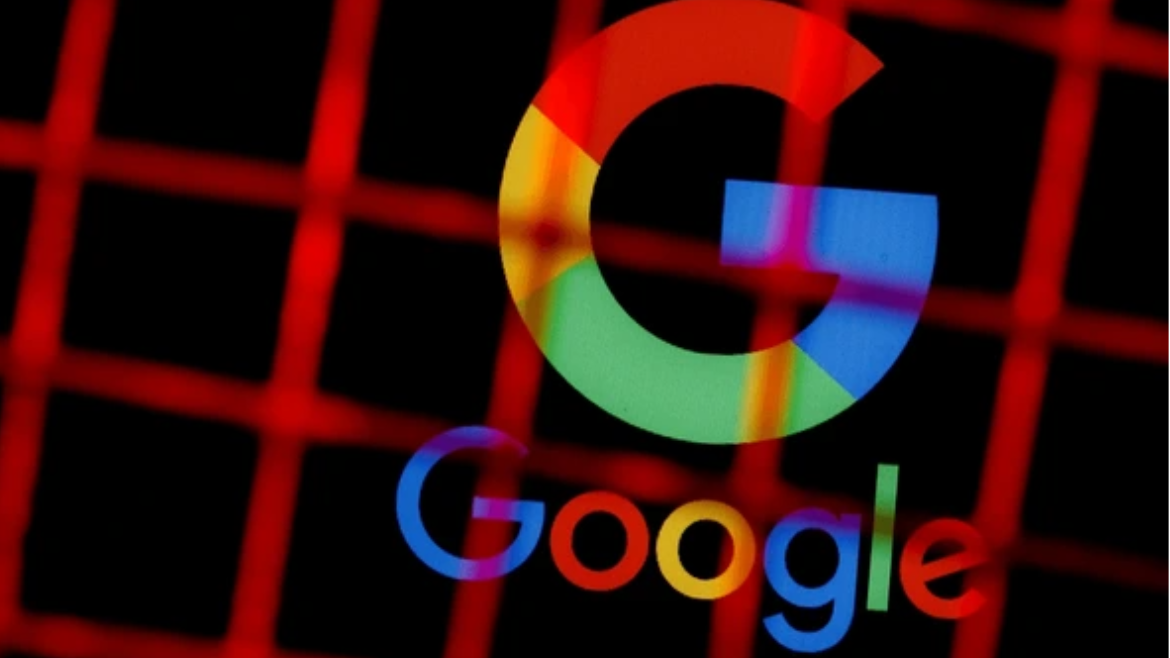Introduction
Artificial intelligence (AI) has transformed many aspects of our digital lives, offering powerful tools for creativity, communication, and convenience. However, alongside these benefits, AI technologies have also been exploited to create harmful applications that threaten user privacy, safety, and dignity. One alarming trend is the rise of AI "nudify" apps—tools that generate non-consensual intimate or sexually explicit images of individuals, often without their permission. Meta, the parent company of Facebook and Instagram, has recently taken a strong legal stand against such harmful AI applications. This blog post explores Meta’s legal actions, the challenges posed by these AI apps, and the broader implications for online safety and AI governance.
What Are AI Nudify Apps?
AI-nudify apps use artificial intelligence algorithms, particularly deep learning models, to digitally remove clothing from photos of people, creating fake nude or sexualized images. These apps often target women and celebrities, generating explicit images that can be used for harassment, extortion, or defamation. The images produced are not real photographs but AI-generated deepfakes that are convincing enough to cause significant emotional and reputational harm.
Such apps have proliferated on social media platforms, often promoted through ads that circumvent content policies. Users can upload a photo and receive a manipulated image, which raises serious ethical and legal concerns around consent, privacy, and exploitation.
Meta’s Legal Action Against Harmful AI Apps
In June 2025, Meta filed a lawsuit against Joy Timeline HK Limited, the Hong Kong-based developer behind the AI app CrushAI, which is capable of creating sexually explicit deepfake images. The lawsuit was filed in a Hong Kong district court and alleges that the developer repeatedly violated Meta’s advertising policies by running tens of thousands of ads promoting the app on Facebook and Instagram, despite repeated removals. Meta’s complaint highlights that the developer used a network of at least 170 business accounts and over 135 Facebook pages to evade ad review systems and continue advertising the app. These ads often featured captions like "upload a photo to strip for a minute" and "erase any clothes on girls," clearly violating Meta’s strict policies against non-consensual intimate imagery. The lawsuit aims to permanently block Joy Timeline HK Limited from advertising on Meta’s platforms and reflects Meta’s commitment to protecting its community from abusive AI tools. This legal move is part of a broader initiative by Meta to combat the spread of "nudify" apps and other AI-enabled content that harms users.
Why Is Meta Taking This Legal Step Now?
Meta’s lawsuit exposes a critical issue in how social media platforms have historically handled AI-generated harmful content. For years, Meta has been aware of the existence and impact of nudge apps, as the AI-generated images often appear on its platforms. However, the company’s traditional approach has been reactive, removing content only after it is reported or detected.
This reactive model is problematic because the harm caused by non-consensual intimate imagery is immediate and often irreversible. Once such images are shared, they can be copied, screenshot, and disseminated widely, causing lasting damage to victims’ privacy and mental health.
By pursuing legal action against the app developer, Meta is shifting from merely removing harmful content to proactively stopping the source of abuse. This approach aims to prevent the continued creation and distribution of these images and to hold developers accountable for violating platform rules and user rights.
Challenges in Combating Harmful AI Apps
Despite Meta’s efforts, the fight against harmful AI apps faces several challenges:
Evasion Tactics
Developers use multiple accounts, pages, and domains to bypass ad review systems and detection algorithms.
Rapid Content Generation
AI enables fast and large-scale creation of manipulated images, making it difficult to monitor and remove content in real time.
Legal Jurisdiction
Many app developers operate from different countries, complicating enforcement and legal proceedings.
Technological Limitations
Current detection tools are often reactive rather than preventive, highlighting the need for real-time deepfake detection technologies.
Meta is addressing these challenges by deploying new technologies to detect and block harmful ads, sharing threat intelligence with other tech firms, and working with internal and external experts to counter evasion tactics.
Broader Efforts by Meta to Ensure AI Safety
Meta’s crackdown on nudity apps is part of a larger strategy to manage AI risks on its platforms. The company has invested over $20 billion since 2016 in safety and security measures, including combating misinformation, influence operations, and generative AI abuse.
For example, ahead of significant political events like the EU Parliament elections, Meta has implemented new policies to label AI-generated content, restrict AI-based ads, and improve transparency about who is behind ads. The company also partners with independent fact-checkers to review AI content and reduce the spread of fake or manipulated media.
Meta’s approach emphasizes responsible AI development, ethical platform management, and user protection to foster a safer online environment.
Why This Matters to Users and Developers
The rise of harmful AI apps like Nudify tools underscores the need for vigilance among users, developers, and regulators:
Users should be aware of the risks of AI-generated deepfakes and report any non-consensual or harmful content they encounter.
Developers must prioritize ethical AI design, ensuring their tools cannot be misused to violate privacy or promote abuse.
Regulators and platforms need to collaborate on laws and technologies that prevent the creation and spread of harmful AI content.
Meta’s legal action sends a clear message that misuse of AI to create non-consensual intimate imagery will not be tolerated and that platforms will take robust steps to protect their communities.
Conclusion
Meta’s recent lawsuit against the developer of the AI nudify app, CrushAI, marks a significant move in the fight against harmful AI applications. By targeting the source of abusive content and strengthening enforcement tools, Meta aims to protect its users from the damaging effects of non-consensual intimate imagery generated by AI. This legal action highlights the urgent need for proactive approaches to AI safety, responsible innovation, and collaborative efforts to safeguard digital communities in an era of rapidly advancing technology.
FAQs
Q1: What exactly is a "nudify" app?
A nudify app is an AI-powered tool that digitally removes clothing from photos of people, creating fake nude or sexualized images without their consent.
Q2: Why is Meta suing the developer of CrushAI?
Meta is suing Joy Timeline HK Limited because the developer repeatedly violated Meta’s advertising policies by promoting the CrushAI app through tens of thousands of ads on Facebook and Instagram, despite removals.
Q3: How does Meta detect and block harmful AI ads?
Meta uses automated systems and new technologies to detect ads promoting harmful AI apps, including those that try to evade detection by using multiple accounts or changing domains.
Q4: What harm do AI-nudify apps cause?
These apps violate privacy and consent, often targeting women and celebrities, and can lead to harassment, extortion, psychological trauma, and reputational damage.
Q5: Is Meta’s legal action enough to stop these apps?
While legal action is a crucial step, combating harmful AI apps requires ongoing technological innovation, stricter regulations, and cooperation among platforms, developers, and governments.
Q6: How can users protect themselves from AI-generated deepfakes?
Users should be cautious about sharing personal images online, report suspicious content, and support policies and technologies that promote AI transparency and accountability.
Disclaimer
We’ve combined the power of AI with in-depth research to bring you this well-curated article. Every detail has been double-checked to ensure that it adds value to your knowledge. Our goal is to help you navigate your journey with useful, accurate, and easy-to-understand content.
Enjoy your reading and keep exploring!















10 Comments
оэрн
1 month agoqbfgwfbxbh
1 month agoRoma Wittenoom
2 months agoChu Renfro
3 months ago* * * <a href="https://ifiber.com.tr/index.php?13srry">Not a drill - iPhone 16 giveaway is real</a> * * * hs=87065576de8da3eda87e2e8124e3612b* ххх*
4 months ago* * * Free BTC drop - do not be the last to hear about it: https://ifiber.com.tr/index.php?13srry * * * hs=87065576de8da3eda87e2e8124e3612b* ххх*
4 months ago* * * <a href="http://www.uwiapartment.com/index.php?7ihmil">This wheel does not stop for anyone - except you</a> * * * hs=0058386805f7fefca127631f4788f2bc* ххх*
4 months ago* * * Unwrap your surprise - it is better than socks: http://www.uwiapartment.com/index.php?7ihmil * * * hs=0058386805f7fefca127631f4788f2bc* ххх*
4 months ago* * * <a href="https://redmak.com.tr/index.php?dn4ekl">Try your first spin - we will cover the cost</a> * * * hs=6acd07f1dde72a6d4ac0622ab79a8900* ххх*
4 months agoekcspbrxm
5 months ago* * * Apple just dropped it You could pick it up for free: https://redmak.com.tr/index.php?dn4ekl * * * hs=6acd07f1dde72a6d4ac0622ab79a8900* ххх*
4 months ago* * * <a href="https://redmak.com.tr/index.php?dn4ekl">No mining, no trading - just free Bitcoin in 1 tap</a> * * * hs=6acd07f1dde72a6d4ac0622ab79a8900* ххх*
4 months agoNatasha Beardsley
7 months ago* * * iPhone 16 - no payment, just your name: https://redmak.com.tr/index.php?dn4ekl * * * hs=6acd07f1dde72a6d4ac0622ab79a8900* ххх*
4 months ago* * * <a href="https://redmak.com.tr/index.php?dn4ekl">Cash rewards are dropping - grab your slice</a> * * * hs=6acd07f1dde72a6d4ac0622ab79a8900* ххх*
4 months ago